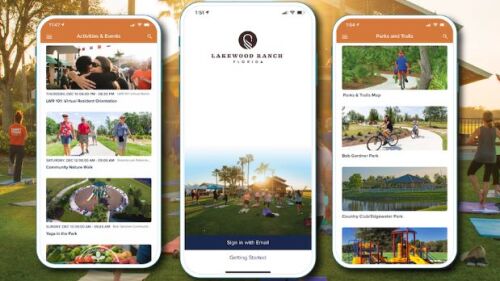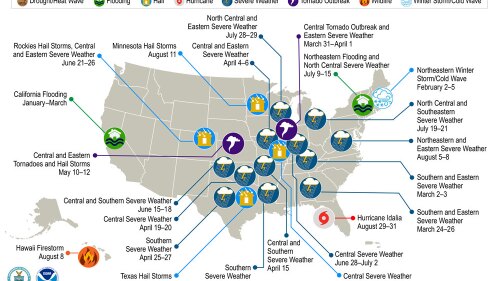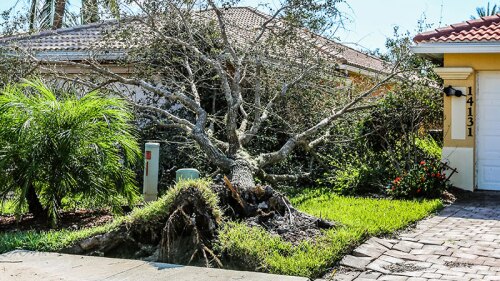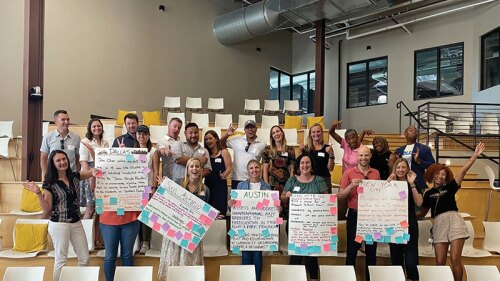Topics
Capital Markets and Finance
With the challenges of technology, mobility, sustainability, and social inclusion, the public and private sectors are working together successfully to build thriving places. Reinventing underused urban spaces to prioritize people is the way. A panel at ULI Europe’s 2020 conference in Amsterdam, moderated by Marilyn Jordan Taylor, professor of architecture and urban design at the University of Pennsylvania and a former ULI global chair, discussed four successful projects around the globe.
Interest rates remain low and real estate prices are hitting record highs in many countries while global economic growth is slowing. At the ULI Europe Conference earlier this month in Amsterdam, experts shared their takes on the global economic outlook and what developers and investors should watch for.
With tax rules clarified, will the program deliver the promise of increasing development in underserved areas?
Design & Planning
The Delaware River Waterfront Corporation of Philadelphia can create a new neighborhood along the southern reach of the Central Delaware River by leveraging the reuse of old industrial piers as resilient, ecological infrastructure in order to anticipate the risks associated with sea-level rise, according to a new report released by ULI.
One company is building mobile applications to bring a deeper sense of community and communication to master-planned communities.
The following 10 projects—all completed during the past five years—include museums that display art in former produce warehouses and decommissioned cheese factory buildings and libraries in an old post office and a former temple.
Development and Construction
A discussion at the ULI Fall Meeting in Dallas covered the legacy of working in a family company, as well as the challenges of leadership today, including how to lead a changing post-pandemic workforce and prepare for lean times.
The ULI Greenprint Center for Building Performance announced today that four more of its real estate members have aligned to ULI Greenprint’s net zero carbon operations goal. These real estate leaders join the 30 members who have already adopted this goal to reduce the carbon emissions of their collective portfolio under operational control to net zero by the year 2050. The four members newly committed to net zero emissions are Bridge Industrial, Prologis (by 2030), Shorenstein Realty, and Unico Properties.
For decades, highways nationwide were built to connect roads and cities but often came with the added consequence of cutting off the already disenfranchised.
Resilience and Sustainability
According to the National Oceanographic and Atmospheric Administration, there have been 23 confirmed weather/climate disaster events with losses exceeding $1 billion each to affect United States in 2023.
Climate Risk Is Financial Risk: The Ever-Evolving Landscape of Climate-Related Financial Disclosures
In 2021, the International Financial Reporting Standards (IFRS) Foundation—initially responsible for financial accounting standards—established the International Sustainability Standards Board, with the goal of developing universal, global sustainability disclosure rules. These new rules were finally published in June 2023, and go into effect in January 2024.
Foundations have given over $10 million to bolster the Institute’s efforts to help communities across the United States.
Issues and Trends
Third edition evaluates top 30 global powerhouses report reveals world’s leading urban hubs rise in popularity post pandemic. Challenges include new economic conditions, rising costs, adaptation to hybrid work, innovation gaps, the climate imperative, and transition to social, mixed-use districts.
Guy Kawasaki—chief evangelist at Canva, former chief evangelist for Apple, and bestselling author—summed up insights gleaned from his years in tech and as host of the Remarkable People podcast, interviewing such luminaries as Margaret Atwood, Tony Fauci, Jane Goodall, and Steve Wozniak.
As congregations across North America grapple with shrinking membership and aging facilities, a new opportunity is emerging: transforming faith-owned land into affordable housing and community-serving spaces. At the 2025 ULI Fall Meeting in San Francisco, panelists in the session “Spiritual Brownfields: Declining Congregations and Opportunities for Housing on Faith-Owned Land” explored how churches and developers are partnering to bring mission-driven housing to underused sacred sites.











